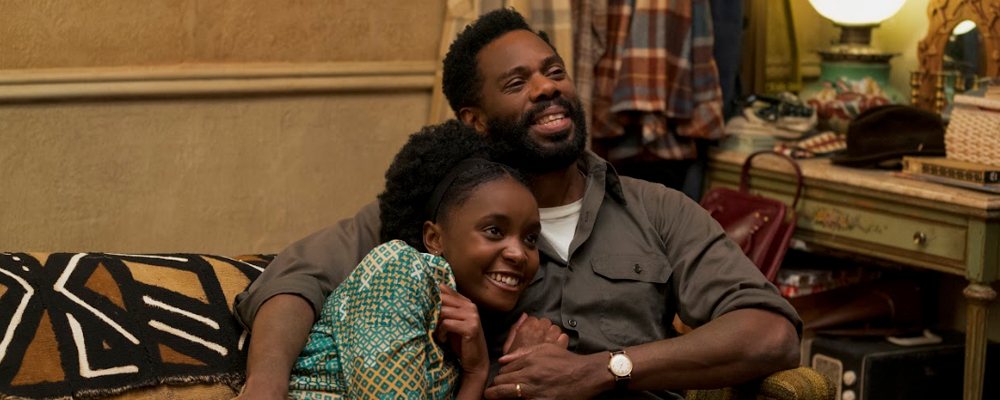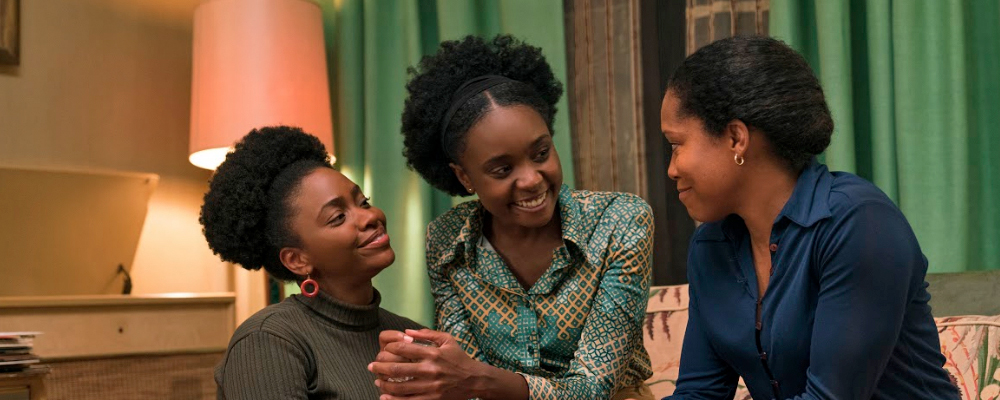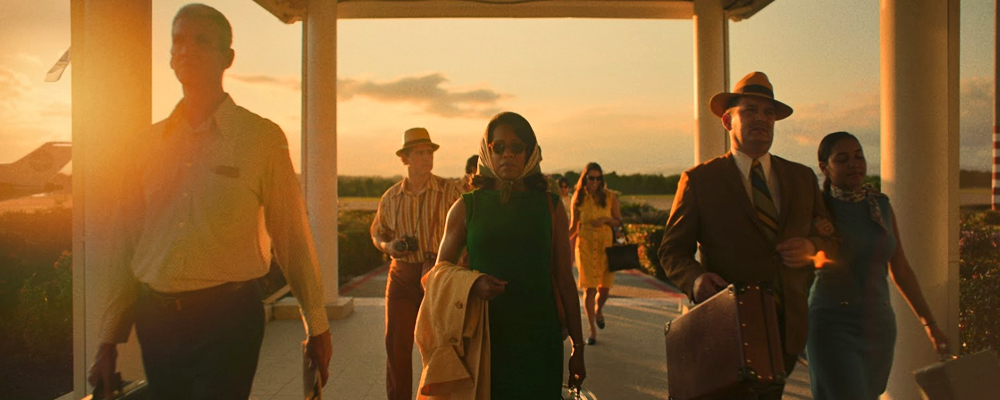Barry Jenkins’ ‘If Beale Street Could Talk’ Eloquently Explores Love in a World of Injustice
Alci Rengifo
This is how you adapt great literature for the screen. “If Beale Street Could Talk” breathes cinematic life into the words of iconic American author James Baldwin. Director Barry Jenkins stays true to Baldwin’s small novel about love amid social repression in 1970s New York, while weaving it into a work of poetic rhythms and visual lushness. There are powerful, stirring emotions in this film where caring for another is like a weapon against an indifferent, cruel world.
Tish Rivers (KiKi Layne) narrates her story, recalling how she fell in love with Alonzo “Fonny” Hunt (Stephan James) in Harlem. They had known each other since childhood, and then as adults different feelings began to brew. As the film opens, Tish is visiting Fonny in prison, where he is locked away, accused of a crime for which he insists his innocence. She has news for him, she is pregnant. Fonny is both happy and frustrated over the situation. Tish’s memory flows back into the past, remembering those first moments when love enveloped the couple, making the smallest details feel so vivid. In the present, Tish grapples with trying to find a way to free Fonny. Her parents, Joseph (Colman Domingo) and Sharon (Regina King), as well as her sister Ernestine (Teyonah Parris), offer support while Fonny’s own parents, Frank (Michael Beach) and Mrs. Hunt (Aunjanue Ellis), are trapped in their own bitter marriage. Tish can only move forward, expecting her baby while looking for any legal means to help Fonny, including tracking down his accuser. But seeking justice is hard in a world where inequality is the norm and the law is rarely on your side.
This film is worth seeing for its texture alone. Jenkins announced himself as a director of eloquent force with his 2016 Oscar-winning “Moonlight,” about a gay man’s journey from an uncertain childhood to an adulthood of personal discovery. It was a film of such human intimacy that it is not surprising that Jenkins would be attracted to adapting James Baldwin. While Baldwin was a master of fiery prose and devastating critical insights, “If Beale Street Could Talk” is one of his more tenderly sentimental works. Its fierce social commentary is nestled within a luminous love story.
Jenkins imagines this tale for the screen with a richness that evokes sheer feelings, places and poetry. Cinematographer James Laxton, who also filmed “Moonlight,” captures 1970s Harlem with a sensuous palette of color reminiscent of Douglas Sirk. Because falling in love can indeed feel like an altering of the senses, Jenkins captures the world through Tish’s eyes in a dreamy haze. There are none of the shallow gimmicks you find in a typical date movie, this is a film that takes the attraction between human beings seriously. Jenkins uses close ups and eloquent narration to give a sense of what it’s like to see someone differently, to realize that to you this person is the most beautiful in the whole world. Clearly and vividly, this film conjures the nervousness mingled with excitement that comes with desiring someone, and have them desire you in return. Jenkins has no need for melodramatic exaggeration. He knows that in real life holding a hand while walking down a quiet street can say everything. At the same time to be separated from a loved one can be wrenching, and when Tish looks at Fonny from behind prison glass we feel the helplessness.
Because Jenkins’s screenplay stays true to Baldwin’s prose, with the visual elegance comes a story with piercing social commentary. Tish and Fonny’s romance is like their cocoon in a society where being black and working class marks you within the system. Fonny, who does woodwork, finds it difficult to rent an apartment simply because of who he is. Tish finds work at a perfume store and describes the different ways in which customers approach her. A black man will spray a sample on his own hand while a white man will spray it on hers and take a long smell. When Tish and Fonny go out into the city together, there is a reverie of escape as the world seems to dissolve. Jenkins conveys the diversity of their world with side characters crafted by Baldwin, but who could be out of Dickens, like the waiter Pedrocito (Diego Luna), who represents the need for minorities to stick together. But loving someone is never easy in a harsh world. Tish and Fonny find themselves under the glare of a racist cop, Officer Bell (Ed Skrein), who will pounce once a woman makes a terrible accusation and Fonny takes the fall.
There is a magnificent command of tone and language in this film. Jenkins delivers expanded scenes where we get to know everyone and dialogue reveals hidden conflicts or stories. An early scene where Tish and Fonny’s families meet to discuss Fonny’s case builds tension with vivid performances, beginning as a civil get together and erupting into exploding tempers. Colman Domingo is aged wisdom, calming down a fight with his smile and maturity, Regina King’s Sharon is the mother who will do anything for her child, even if it means traveling to Puerto Rico to get answers. So fine is her performance that we sense a person keeping in the anger to put on a brave face. Aunjanue Ellis as Mrs. Hunt is flawlessly bitter and conservative, exactly as described by Baldwin. The two leads, KiKi Lane and Stephan James, do something unique in how they express the reverie of love and then the heartbreak of the real world shattering their illusions. Lane’s face is a portrait of beautiful tenderness and deep sorrows.
“If Beale Street Could” talk has both a passionate heart and sober eye. It immerses us in a silky love story but then challenges it with the realities of racism and classism. For every shot of a kiss or of Tish and Fonny making love, there is a moment where Tish and her family beg lawyers and witnesses for help. The music by Nicholas Britell, sparse and melodic, gives everything an overwhelming melancholy. Jenkins honors the work of an American literary master, while confirming yet again that he too is a great poet.
“If Beale Street Could Talk” opens Dec. 14 in select theaters and expands on Christmas Day.




